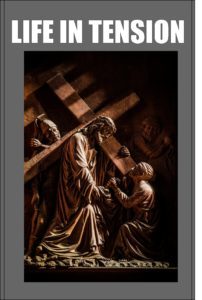God’s Core Values

The LORD, the LORD, a God merciful and gracious,
slow to anger, and abounding in steadfast love and faithfulness,
(Exod 34:6)
By Stephen W. Hiemstra
Immediately following the giving of the Ten Commandments, God proclaims his attributes to Moses, much like a herald might introduce the titles and accomplishments of an important dignitary. Scripture underscores the importance of these attributes by repeating them, almost word for word, in Psalm 86:15 and Psalm 103:8, Joel 2:13, and Jonah 4:2. In the parallel context of the giving of the Law (Deut 4:31), only mercy is cited, underscoring its primacy in the Jewish understanding of God’s character.
The emphasis on mercy and the de-emphasis on faithfulness (or truth) in Exodus 34:6 suggests that God is soft-hearted. The passage mentions mercy, gracious, slow to anger (or long nostrilled), abounding in love (hesed), and faithfulness (emeth). Hesed love in the Hebrew is best translated as covenantal love because of the context here as God just delivered the Ten Commandments to Moses. “Emeth” is often translated as faithfulness, but it also means truth. When Apostle John describes Jesus as full of grace and truth (John 1:14), he is making a claim of divinity with reference to Exodus 34:6.
Psalm 86 repeats each of the five words of Exodus 34 in the same order. Psalm 103 repeats the first four words, but drops faithfulness. Joel 2 repeats the first five words, but substitutes “relents over disaster” for faithfulness. Jonah 4 likewise substitutes “relents over disaster” for faithfulness but swaps grace and mercy. The emphasis on mercy and the de-emphasis on faithfulness in God’s attributes is important because they provide guidance on how to interpret law especially when conflicts arise or when a new context requires interpretation.
The primacy of mercy in the Jewish understanding of God’s character figures prominently in the story of the Prophet Jonah. Jonah refused God’s call to preach repentance to the sinful people of Nineveh (a city whose ruins lie cross the Tigris river from Mosul, Iraq; Nahum 1:1). Rather than answer God’s call, Jonah boarded a ship going the opposite direction (Jonah 1:2–3). After being caught in a storm, thrown overboard, and rescued by a whale, Jonah reluctantly responded to God’s call, traveled to Nineveh, and preached repentance to the Ninevites. When the Ninevites responded to his preaching, turned from their sin, and begged God to forgive them (Jonah 3:9-10), God relented from destroying the city.
Showing mercy to Nineveh seemed unjust to Jonah and it made him angry because Nineveh was the hometown of Sennacherib, king of Assyria who conquered Judah and made King Hezekiah his vassal (Isa 36-37), so Jonah:
prayed to the LORD and said, O LORD, is not this what I said when I was yet in my country? That is why I made haste to flee to Tarshish; for I knew that you are a gracious God and merciful, slow to anger and abounding in steadfast love, and relenting from disaster. (Jonah 4:2)
Jonah knew God’s attributes (citing Exod 34:6) and did not want to give the hated Ninevites the opportunity to repent and have God forgive them, as he knew God would.
Mercy is first among God’s attributes because as human beings we are born in sin and must acknowledge our sin before we feel any need for God. Our need is like that of a young man who, not liking the newly elected president, leaves the country, and tears up his passport; without being issued a new passport, he cannot return home. In our case, our passport into the kingdom of God is his mercy, without which we cannot experience God’s other attributes.
God’s Core Value
Also see:
Preface to a Life in Tension
Other ways to engage online:
Author site: http://www.StephenWHiemstra.net
Publisher site: http://www.T2Pneuma.com
Newsletter: https://bit.ly/Release_2020
The post God’s Core Values appeared first on T2Pneuma.net.



